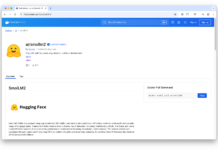Meta’s Renewed Commitment to Free Expression
Meta, the company behind popular platforms like Facebook, Instagram, and Threads, has long been recognized as a place for individuals to freely express their thoughts and ideas. However, with billions of voices contributing to the conversation, the landscape can often appear chaotic, showcasing the good, the bad, and everything in between. This is a natural byproduct of free expression, a principle that Meta is now reaffirming its commitment to, amidst recent policy changes.
Back in 2019, Meta’s CEO, Mark Zuckerberg, delivered a speech at Georgetown University emphasizing the importance of free expression in fostering progress both in the U.S. and globally. He argued that curtailing speech, despite often noble intentions, can reinforce existing power structures rather than empowering individuals. Zuckerberg highlighted a growing concern where some believe that giving more people a voice might drive division rather than unity. He warned against prioritizing political outcomes over the fundamental right of every individual to have a voice, labeling such a stance as dangerous.
Re-evaluating Content Moderation and Free Speech
Over recent years, Meta has developed complex systems to manage content across its platforms. This evolution was partly a response to societal and political pressures to moderate content more rigorously. However, these efforts have occasionally overreached, leading to numerous mistakes, user dissatisfaction, and inadvertently hindering the free expression the platforms were designed to enable. Too often, harmless content has been censored, and users have found themselves wrongly penalized in what is colloquially known as "Facebook jail." The company recognizes these shortcomings and is taking steps to address them by returning to its foundational commitment to free expression.
Transitioning to Community Notes: A New Approach
In 2016, Meta launched an independent fact-checking program, an initiative designed to offer users more information about online content, particularly viral hoaxes. This program enlisted independent fact-checking organizations to help users evaluate the truthfulness of what they encountered online. However, the execution of this initiative, especially in the United States, did not unfold as planned. Biases and perspectives of these independent experts influenced their fact-checking choices, often leading to the over-moderation of content that was legitimate political speech and debate. Consequently, the program began to resemble a tool for censorship rather than a resource for information.
In response, Meta is ending its third-party fact-checking program in the U.S. and shifting towards a Community Notes approach. This new system takes inspiration from a successful model implemented by X (formerly Twitter), where the community itself identifies potentially misleading posts and provides additional context. This model empowers users from diverse perspectives to contribute context, reducing the risk of bias.
Under this program:
- Community Notes will be user-generated and rated, with Meta not directly involved in writing or selecting the notes.
- To prevent biased ratings, agreement among users with varied perspectives will be required.
- Meta aims for transparency in how different viewpoints shape the displayed notes and is working on effective ways to share this information.
- Interested users can sign up to be among the first contributors as the program rolls out.
The phased rollout of Community Notes will begin in the U.S. over the coming months, with ongoing improvements planned. As part of this transition, Meta will eliminate its existing fact-checking controls, cease the demotion of fact-checked content, and replace intrusive full-screen warnings with more subtle labels indicating additional information availability.
Broadening the Scope for Speech
Meta’s content management systems have grown increasingly complex, often leading to over-enforcement that limits legitimate political debate and censors trivial content. In December 2024 alone, millions of pieces of content were removed daily. While these actions represented less than 1% of daily content, the company acknowledges that a significant portion of these removals may have been mistakes. Meta plans to enhance its transparency reporting, regularly sharing data on these errors and providing more details on missteps in enforcing spam policies.
To address these issues, Meta is scaling back restrictions on topics like immigration, gender identity, and other subjects central to political discourse. The company believes that discussions taking place freely on television or in Congress should also be permissible on its platforms. These policy changes may take several weeks to fully implement.
Furthermore, Meta is revising its enforcement practices to minimize mistakes. While automated systems will continue to tackle illegal and high-severity violations (such as terrorism, child exploitation, drugs, fraud, and scams), less severe policy violations will now require user reports before action is taken. Meta is also reducing content demotions that predict potential policy violations and increasing the confidence threshold for content removal.
As part of these changes, Meta is relocating its trust and safety teams, responsible for policy writing and content review, from California to Texas and other U.S. locations. The appeal process for enforcement decisions will be streamlined, with additional staff and multiple reviewers involved in decision-making. The company is also exploring facial recognition technology and employing AI large language models to provide second opinions on content before enforcement actions are taken.
A Tailored Approach to Political Content
Since 2021, Meta has reduced the visibility of civic content, such as posts about elections, politics, or social issues, in response to user feedback. However, this approach was somewhat blunt. Now, Meta is reintroducing civic content to Facebook, Instagram, and Threads feeds in a more personalized manner. Users who wish to see more political content will have the option to do so.
Meta is continuously experimenting with personalized experiences and recently conducted tests related to civic content. As a result, civic content from followed people and Pages will be treated like any other feed content, with ranking based on both explicit signals (e.g., likes) and implicit signals (e.g., post views). The company also plans to recommend more political content based on these personalized signals and will offer expanded options for users to control the volume of this content they see.
These changes reflect Meta’s renewed dedication to the principle of free expression, as articulated by Mark Zuckerberg in his Georgetown speech. The company remains vigilant about the impact its policies and systems have on individuals’ ability to voice their opinions and is committed to adjusting its approach when necessary to uphold this fundamental right.
For more Information, Refer to this article.


































![Samsung’s Breakthrough Fuels Progress in Science and Industry: Interview How Samsung’s Engineering Feat Became a Catalyst for Scientific and Industry Advancement [Interview on Real Quantum Dots Part 2.]](https://www.hawkdive.com/media/samsung-tvs-and-displays-samsung-quantum-dots-technology-qled-tvs-quantum-dots-experts-interview-par-218x150.jpeg)